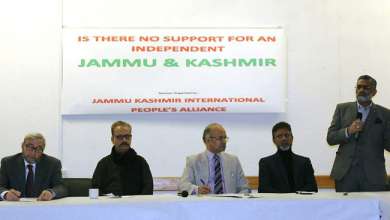UK
Mohammed Zahir Khan v SSJ – Challenge to Early Release Regime

2. By this judicial review application, brought with my permission on 5 May 2020, Mohammed Zahir Khan (“the Claimant”) seeks to challenge the early release regime introduced by the Terrorist Offenders (Restriction of Early Release) Act 2020 (“the 2020 Act”). Formally, the Claimant challenges the decision of the Secretary of State for Justice to enforce the legislation in his case, but in substance the challenge is to the legislation itself. The relief which the Claimant seeks is a declaration that s.247A of the Criminal Justice Act 2003 (“CJA 2003”), which was inserted by the 2020 Act, is incompatible with Articles 5, 7 and 14 of the European Convention on Human Rights (“the ECHR” or “the Convention”).
5. The 2020 Act received Royal Assent, and came into force, on 26 February 2020. It had an immediate effect on the Claimant’s release date.
10. On 2 May 2018, the Claimant was sentenced to a determinate sentence of four years and six months. He was provided with documentation from the Ministry of Justice that suggested his release from prison would take place on 1 March 2020. That would have been in accordance with the existing regime for automatic release at the halfway point.
121. From those authorities it is possible to draw the following principles: i) The early release arrangements do not affect the judge’s sentencing decision; ii) Article 5 of the Convention does not guarantee a prisoner’s right to early release; iii) The lawfulness of a prisoner’s detention is decided, for the duration of the whole sentence, by the court which sentenced him to the term of imprisonment; iv) The sentence of the trial court satisfies Article 5(1) throughout the term imposed, not only in relation to the initial period of detention but also in relation to revocation and recall; and v) The fact that a prisoner may expect to be released on licence before the end of the sentence does not affect the analysis that the original sentence provides legal authority for detention throughout the term.
122. In our judgment those principles are not affected by the decision in Del Rio Prada. Del Rio Prada does not detract from the core distinction between sentence passed by the sentencing judge and the administration or execution of the sentence. Throughout the relevant period, the governing authority for the detention is the original sentence. It is entirely foreseeable (if necessary with appropriate legal advice) that during the currency of a determinate sentence, which was calculated and imposed without account being taken of the possibility of early release, the arrangements for the execution of the sentence might be changed by policy or legislation. Accordingly, the lawfulness of the sentence was not undermined or compromised by changes of the sort made by the 2020 Act.
123. In those circumstances, the challenge under Article 5 must also fail.
124. For those reasons we reject the challenges under Articles 14, 5 and 7 and this application is dismissed.
Read the full jugement: https://is.gd/U2lgEV





